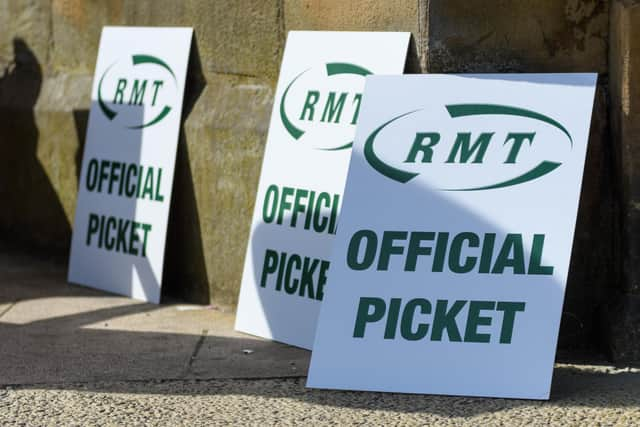Train strikes have 'contributed to the closure' of hospitality businesses
Kate Nicholls, Chief Executive of Hospitality UK, said the strikes have prevented customers and workers from travelling to pubs, restaurants and other venues over the last year, and deterred them from booking tickets for major events.
Around 70 per cent of foreign tourists arrive in the UK via London and many have been reluctant to travel to other destinations around the country due to the disruption on the railways, she told Parliament’s Transport Committee during a research yesterday.
Advertisement
Hide AdAdvertisement
Hide AdRMT members working for Network Rail agreed to end a long-running dispute over pay, jobs and conditions earlier this week and accept a new offer, but the trade union remains in dispute with train operators and has planned two fresh strikes next week.


“My sector has seen significant collateral damage,” said Ms Nicholls. “It’s a sector that has been devastated by Covid and now we’ve lost £3bn of revenue and there’s no doubt it’s contributed to some of the closures we’ve seen over the last year.
Ms Nicholls said the strikes are having a significant impact on weekend and leisure travel, as many commuters can now choose to work from home.
“The biggest impact was felt just before Christmas, when the most profitable week of trading in the year was effectively taken out by strike action. We saw cancellation rates as high as 60 per cent in our town and city centres,” she said.
Advertisement
Hide AdAdvertisement
Hide AdShe also told MPs that businesses in cities such as London and Manchester have seen footfall and revenue drop by up to 80 per cent on strike days.
The Government wants to introduce a new law, which would require operators to run a minimum number of services on strike days.
Ms Nicholls said that should be used as “a last resort” and negotiations with trade unions should always be prioritised.
The law could require operators to run a certain percentage of the services they usually operate or introduce temporary timetables on strike days that aim to meet the demands of passengers.
Advertisement
Hide AdAdvertisement
Hide AdAnthony Smith, Chief Executive of Transport Focus, said: “Having a bespoke timetable where people have got a chance to input into the construction of the timetable is likely to have a much greater chance of success.”
He added: “Whatever is put in place has got to be reliable. We’ve been saying to the Government and to the industry: ‘Don’t put in place something that’s heroic, put in something you can deliver day in, day out’.”